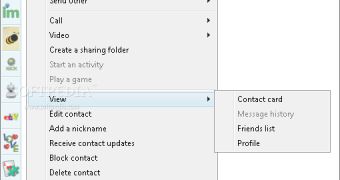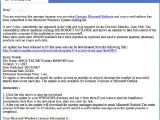It's well known the fact that the security of our computers is more and more threatened and this is proved especially by the avalanche of viruses and other infected files that is reported every day. Obviously, even the most powerful software solutions ever developed are affected but the attackers are now aiming to exploit the popular applications in order to make their attempts successful. Windows Live Messenger was affected on Monday by a dangerous worm, codenamed W32/Impard-A that targeted the instant messaging clients and the BitTorrent solutions. Basically, it tries to spread itself through a file called IMG009.jpg-www.imagehosting.com that encourages users to open it in order to infect the computers. Once it is successfully installed, it automatically sends several messages such as "wanna see this pic of me? :D sec" and "hahaha check out this pic ull die" to the contacts.
"Another feature of the worm is its ability to harvest other bots - it scans through each running process and looks for signs that it might be a bot. If any catch its attention, it first attempts to terminate that process, then to send the file over IRC to its own controller, and finally to delete it. This clean-up isn't for altruistic reasons, but sees the author staking the infected computer as his territory, while also sending himself the offending bot to add to his own personal arsenal," Richard Cohen, SophosLabs Canada, said on Monday.
As usual, you're encouraged to keep your antivirus solutions up to date with the latest virus definitions and try to avoid opening untrusted or unknown files.
Microsoft announced on Tuesday that it wants even more from its Virtual Earth mapping tool because the fight with Google becomes more important and it has to be won by the Redmond company. In order to do that, the software giant announced the extension of the partnership with Dassault Syst?me, a company that can work with Microsoft and help it improve its 3D offerings. A few weeks ago, Virtual Earth received several new goodies, the parent company implementing a lot of new 3D imagery from several US locations.
"Together, our technologies will allow for a fusion of the real and virtual worlds that unleashes our imagined world and bridges it with the one we live in," said Bernard Charl?s, president and CEO, Dassault Syst?mes. "Our lifelike 3-D modeling solution will provide a robust dimension to Microsoft's powerful, immersive online mapping and visualization experience."
The security of the Microsoft tools was the main subject at Redmond because the software giant was involved in more or less critical security issues. On Wednesday, the Microsoft employees are again alerted by a notification that revealed fake Microsoft Outlook updates trying to infect the users' computers. Security company Sophos informed us that a new fake Microsoft update containing the Mal/Behav-112 Trojan horse tries to lure users into installing a malicious file.
"Once the above link is clicked, a request is not made to "microsoft.com" but instead to one of many compromised sites hosting a Trojan, proactively detected by Sophos as Mal/Behav-112. An interesting feature of this campaign is the target's full name, and in most cases the organization they are associated with, is mentioned within the message. The samples we have received also lists a bogus Microsoft Windows Licence key, all in an attempt to make the message look legitimate to the recipient," the Sophos experts said.
It is said that Microsoft's Windows is the most popular software solution on the planet and it helped the Redmond company record huge earnings from every corner of the world. Probably everyone admits it, Windows is the most popular operating system ever created. But this doesn't necessarily mean that it is also safe, secure and protected from the huge number of malicious attempts. On Thursday, the software giant's officials announced that Microsoft is continuously working against the software piracy and, until now, it managed to discover and bring to court no less than 125 companies selling pirated copies of its operating system.
"As part of an ongoing effort to address the issue of piracy, these filings bring Microsoft's total during the past year to 125 actions. The filings are done to help protect honest system builders and resellers who find it difficult to compete against companies selling pirated software. Software piracy cost the U.S. economy around $7.3 billion in revenue in 2006, according to a study conducted by industry analyst firm IDC and commissioned by the Business Software Alliance (BSA)," Microsoft said.
As you might know, the Redmond company was affected even from the early releases of the operating system because Windows 95 was made available on the Internet two weeks before the official launch date.
On Friday, the software giant recorded one more defeat in the battle against the illegal activities because the UK domain of the company was hacked by an attacker identified as rEmOtEr. Microsoft confirmed the hack attempt and said that it was successful due to a complex SQL injection attack that allowed the hacker to modify the content of the page. However, the Redmond employees were quickly alerted about the issues and managed to fix the modified page in no time.
"Roger Halbheer, chief security advisor for Microsoft in Europe, the Middle East and Africa admitted that the hack was successful and revealed that the whole event was unfortunate. According to Microsoft, no sensitive information was compromised in the attack. This is a clear indication that the hack was done for show, rather than to actually cause any harm. Another argument that supports such a scenario is the fact that rEmOtEr took time to document the hack in two separate video fragments. You will be able to watch for yourselves the live hacking via the two "remoter_vs_microsoft.avi" files", Marius Oiaga from Softpedia wrote in an article published on Friday.

 14 DAY TRIAL //
14 DAY TRIAL // 

